
How to Ready Your Business For Scalability?
Setting up a business is one thing but growth and scalability are a totally different story. The metrics change drastically in the latter. It is true that the beginning stages for any business can be tough and complicated, however business owners must also think of ways to prepare for the future plans of scaling up and expansion.
Once your business has traversed the road between setting up and scalability newer challenges begin to appear and the best way to mitigate them is to be ready and prepared. Scalability means growth and expansion which should be the target of every business. Without it, you start stagnating and your business ultimately ends in a stalemate.
Scaling your business should be approached with caution, if you go too fast you can end up crashing and if you go too slow you may find yourself and your business in a quagmire-like situation. There is an optimal rate of growth that is needed so that your business doesn’t suffer in the long run. This calls for elaborate preparations keeping the future in mind to effectively counter any challenges.
Read here: Enterprise SEO: Let Your Website Produce Your Dream Results
There are several practices that you can employ to ensure that you have steady growth and nothing deviates from the plan. These guidelines when implemented will also ensure a seamless scaling process and help you through rough patches on the road.
4 Must-Implement Elements For Scalability:

1. Automation: The Key To Speedy Scalability
As far as business processes are considered, they utilize manpower and resources. Automation simply means handing out menial and repetitive tasks to machines. This helps in reducing the margin of human error, saving time and simplifying processes like sales, payroll, accounting, and marketing. Ex: A buffer is a software that lets you schedule social media posts.
Such tools are super useful in saving time which can be utilized in other creative activities. Automation also provides helpful data analytics that boosts marketing operations.
Similarly, automation integration holds true for several other aspects of the business too:
- Automation for email marketing
- Payment processing
- Accounting & payroll automation
- Lead tracking and analytics
- Customer service automation
Automation has a lot of scope in the future in terms of business improvement and in preparing your business for an upward climb.
2. Cloud Computing For Scaling Up Resources:
Cloud computing is the best way to work in real-time with servers, databases, storage, networking, software, and analytics. Cloud computing allows you to access and deliver all these network-related functions in real-time over the internet. Apart from providing considerable advantages in efficiency and scalability, it provides the opportunity to expand IT resources as you scale up your business. Cloud computing answers the growing bandwidth demand and allows you to operate with better efficiency even when your business grows and functions at a higher capacity.
3. Long Term Financial Foresight:
Setting up your finances correctly is crucial from day one to improve scalability. Your business revenue must exceed costs in order to survive in the long run and of course to make it a profitable one. Scalability means thinking in the long term. When you start to earn profits put aside some money to re-invest in the business when you want to scale up or expand. This will do away the need for finding investors whenever you want to scale up your business giving you the majority of the control over your business. You can also invest your surplus in liquid assets which can be used in times of need.
4. Mastering The Sales Funnel:
Sales is the priority for any business. An effective sales funnel ensures that nothing can hold back your business. From lead generation to closing a sale, all steps in your sales funnel must be smooth and well organized.
There are typically 3 stages of any sales funnel:

Awareness: This is the stage when you reach out to your prospective customers. Effectively accomplished by a strong content marketing strategy. This phase can include informative and relevant content, along with email newsletters, ebooks, guides, video tutorials, blogs, etc. This content should be equally interesting and informative to capture the maximum audiences.
Evaluation: This is where your prospective customers or ‘warm’ traffic begins to turn ‘hot’ and real by engaging with your products and content. Prospects can be clearly identified inching towards purchases. Marketing material for this phase should include webinars, tutorials, case studies, and customer reviews and testimonials. Any content that would help customers make an informed decision would help in this phase of sales funnel.
Decision: This is the ultimate phase of a sales funnel, where-in a customer decides on what to purchase. This is the point where you can relay your offers and discounts to maximize the chances of purchase and encourage them to return to your business in the future. Every phase of your sales funnel must be well thought and tested to determine the most optimal performance. Once proven, you can use the strategy on ‘auto-pilot’ for the future.
Implementing the above 4 steps will ensure that your business is ready for scalability operations and can bear the brunt of expansion. You don’t want your business to crumble and hence being ready on all fronts is the logical way to go about this. However, there may still be some issues but the majority of the obstacles can be mitigated with these practices.
Is Search Engine Submission Necessary?
Need Web Development? Head To TECHTLK AUSTRALIA



Subscribe to MarketingSolution.
Receive web development discounts & web design tutorials.
Now! Lets GROW Together!